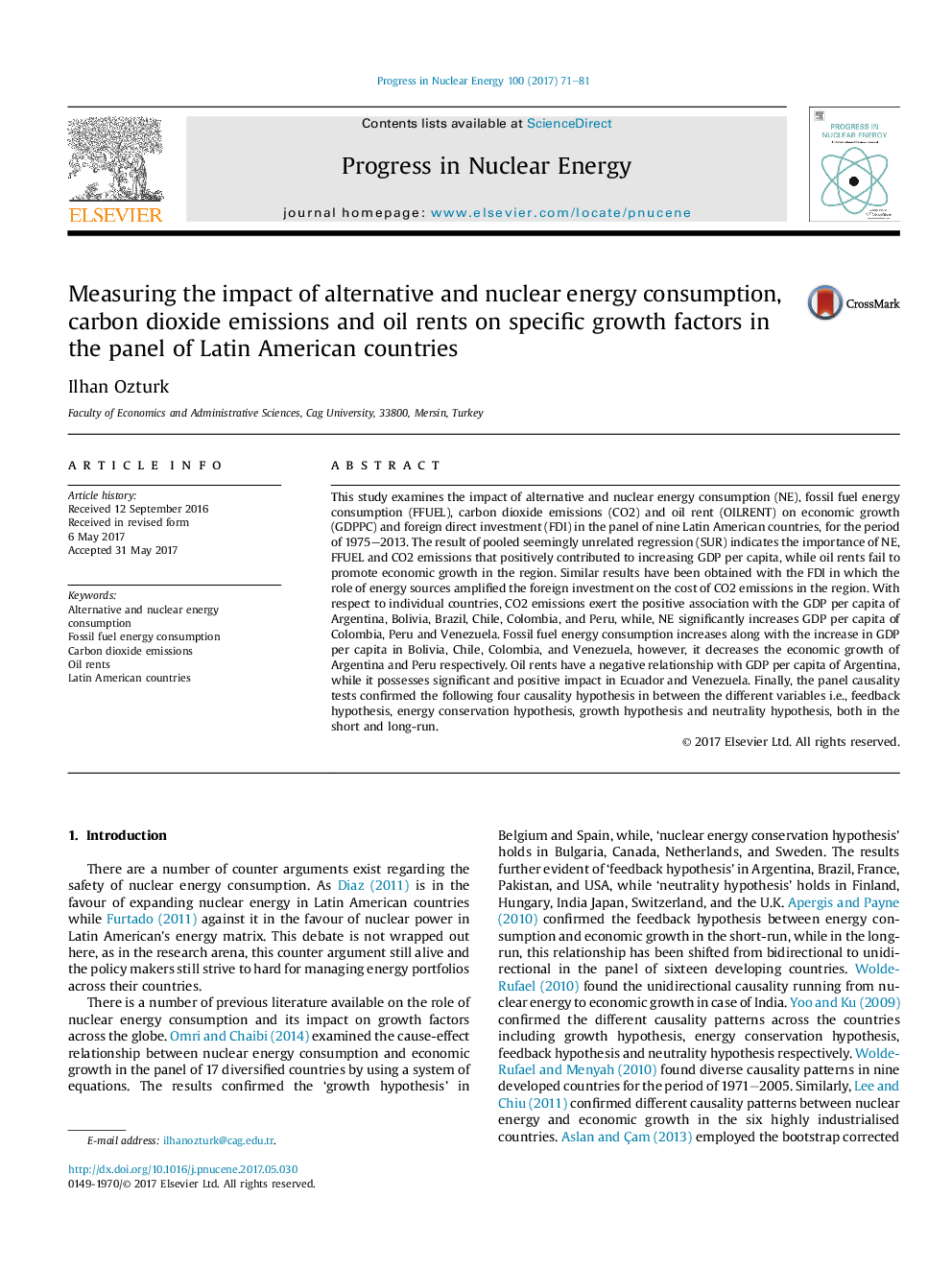| کد مقاله | کد نشریه | سال انتشار | مقاله انگلیسی | نسخه تمام متن |
|---|---|---|---|---|
| 5478167 | 1521738 | 2017 | 11 صفحه PDF | دانلود رایگان |
عنوان انگلیسی مقاله ISI
Measuring the impact of alternative and nuclear energy consumption, carbon dioxide emissions and oil rents on specific growth factors in the panel of Latin American countries
ترجمه فارسی عنوان
اندازه گیری تاثیر مصرف انرژی جایگزین و هسته ای، انتشار دی اکسید کربن و اجاره نفت بر عوامل رشد خاص در گروه کشورهای آمریکای لاتین
دانلود مقاله + سفارش ترجمه
دانلود مقاله ISI انگلیسی
رایگان برای ایرانیان
کلمات کلیدی
مصرف انرژی جایگزین و هسته ای، مصرف انرژی سوخت فسیلی، انتشار دی اکسید کربن، اجاره نفت، کشورهای آمریکای لاتین،
موضوعات مرتبط
مهندسی و علوم پایه
مهندسی انرژی
مهندسی انرژی و فناوری های برق
چکیده انگلیسی
This study examines the impact of alternative and nuclear energy consumption (NE), fossil fuel energy consumption (FFUEL), carbon dioxide emissions (CO2) and oil rent (OILRENT) on economic growth (GDPPC) and foreign direct investment (FDI) in the panel of nine Latin American countries, for the period of 1975-2013. The result of pooled seemingly unrelated regression (SUR) indicates the importance of NE, FFUEL and CO2 emissions that positively contributed to increasing GDP per capita, while oil rents fail to promote economic growth in the region. Similar results have been obtained with the FDI in which the role of energy sources amplified the foreign investment on the cost of CO2 emissions in the region. With respect to individual countries, CO2 emissions exert the positive association with the GDP per capita of Argentina, Bolivia, Brazil, Chile, Colombia, and Peru, while, NE significantly increases GDP per capita of Colombia, Peru and Venezuela. Fossil fuel energy consumption increases along with the increase in GDP per capita in Bolivia, Chile, Colombia, and Venezuela, however, it decreases the economic growth of Argentina and Peru respectively. Oil rents have a negative relationship with GDP per capita of Argentina, while it possesses significant and positive impact in Ecuador and Venezuela. Finally, the panel causality tests confirmed the following four causality hypothesis in between the different variables i.e., feedback hypothesis, energy conservation hypothesis, growth hypothesis and neutrality hypothesis, both in the short and long-run.
ناشر
Database: Elsevier - ScienceDirect (ساینس دایرکت)
Journal: Progress in Nuclear Energy - Volume 100, September 2017, Pages 71-81
Journal: Progress in Nuclear Energy - Volume 100, September 2017, Pages 71-81
نویسندگان
Ilhan Ozturk,
